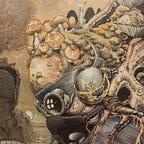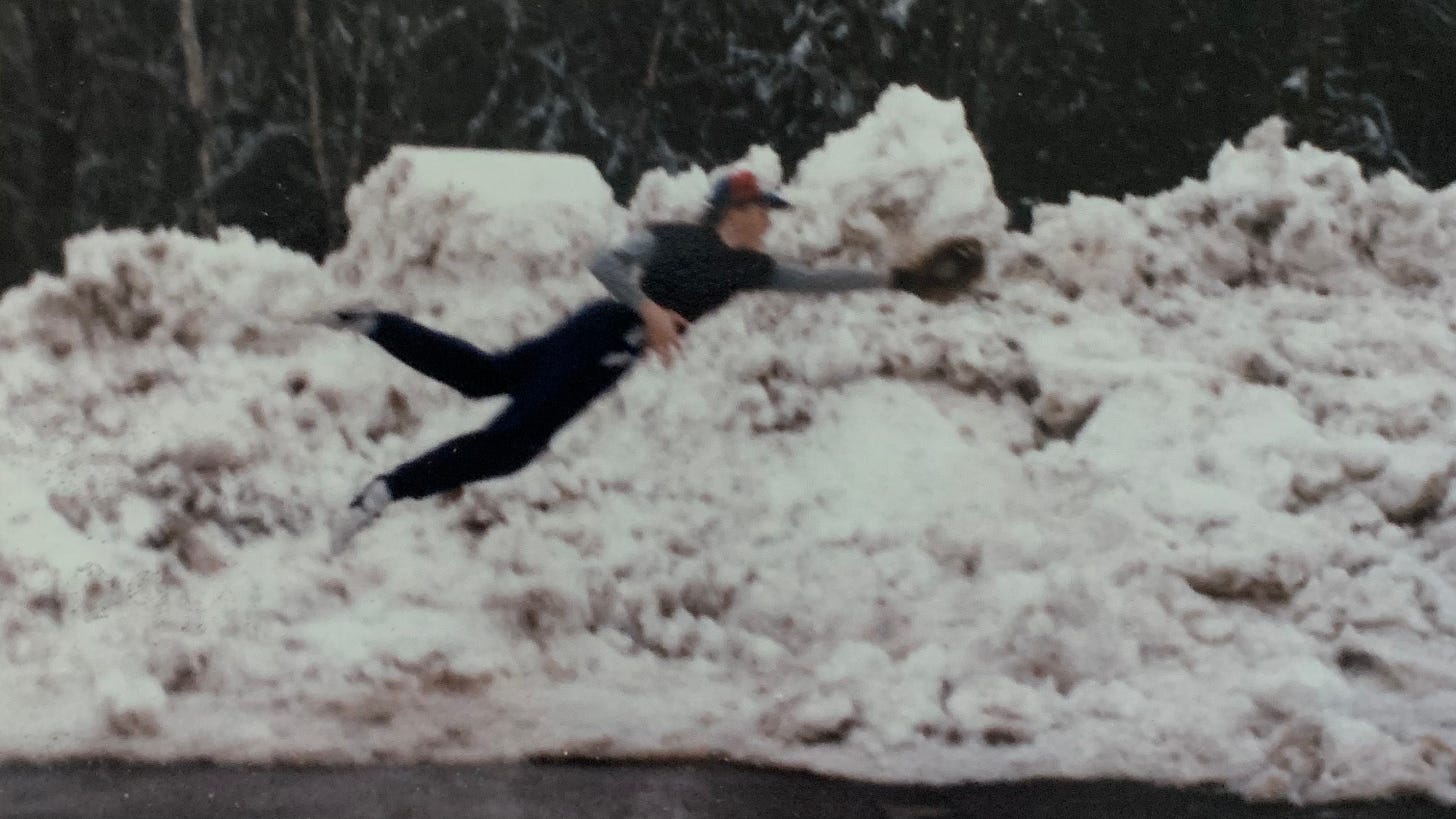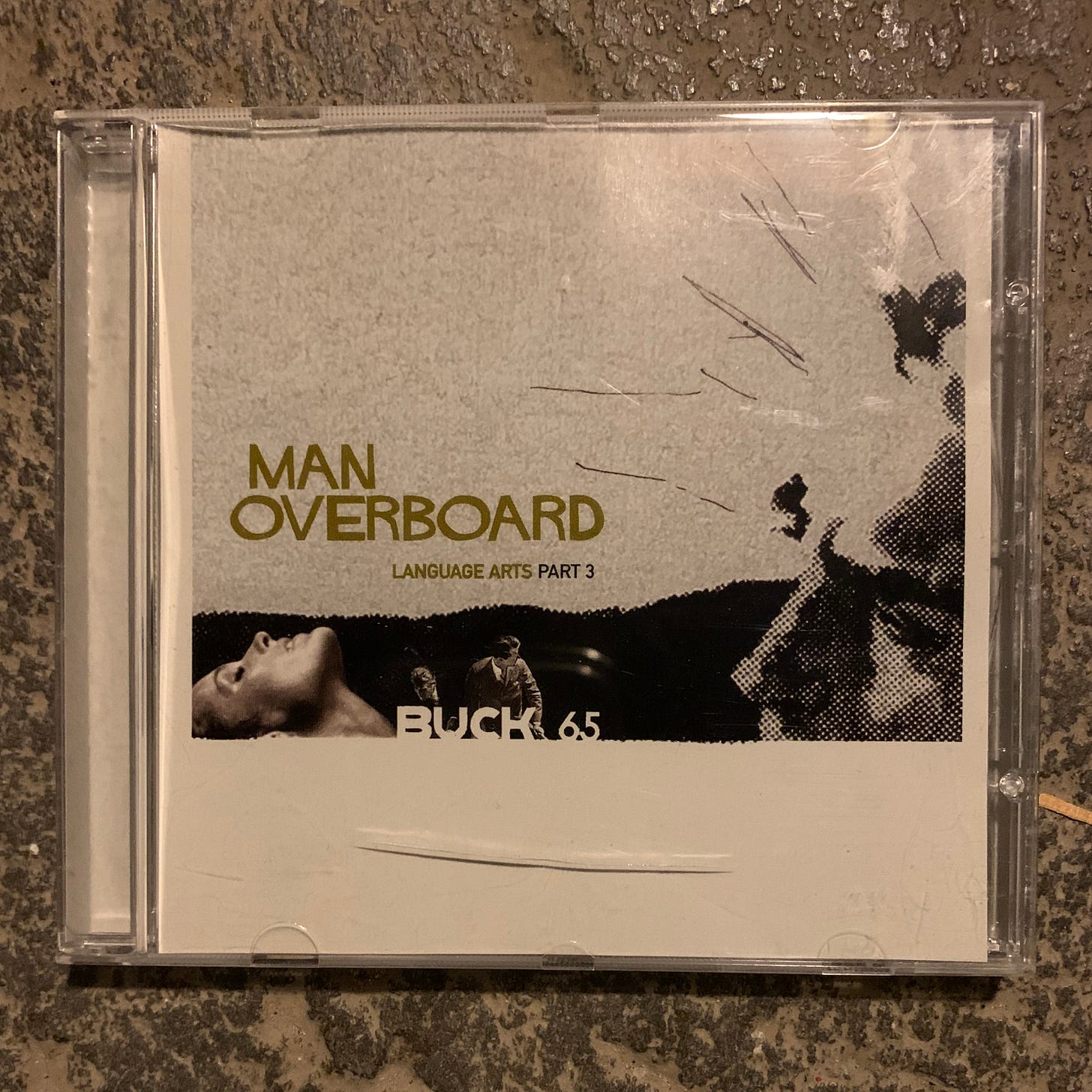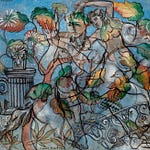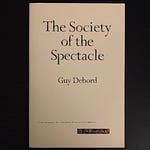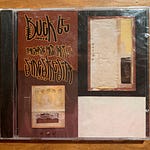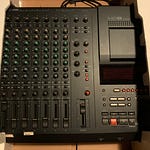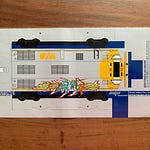I can’t quite remember if my mom passed away while I was making the Man Overboard album or if I started working on it just after she passed away.
From the time I was a little kid, I was a big dreamer. I wanted to be a star baseball player. And later, I dreamed of music stardom (or at least success). My mom was always wrapped up in those dreams. I wanted to do it for her. More than anything else in life, I wanted to make her proud.
When my mom passed away in February of 1999, I was a bum. I was still living in the rat-hole apartment. I was working a minimum-wage job. I was still just barely managing to pay the rent which meant there was no money left over to take care of myself. And worst of all, I had no prospects. The future looked pretty grim. Dealing with my mom’s passing was hard enough but the fact that I was such a bum at the time was crushing to me. She left this world without knowing if I would ever make anything of myself and probably fearing that I wouldn’t.
One fateful day a year or so after Man Overboard was released, I marched my ass down to the campus of the university where I had wrapped up four years of study for my BSc just a few years before. I spoke to an advisor about picking up where I left off. I was ready to give up on my music dreams so that I might work toward becoming a doctor like my mom always hoped I would instead.
When I returned to my apartment a few hours later, there were dozens of messages on my answering machine. Radiohead had just released their album Kid A and in interviews, the guys in the band mentioned that they had been listening to Man Overboard. Friends who had heard or read these interviews were calling with the news.
22 years later, it might be hard to appreciate how monumental an endorsement from Radiohead was in 2000. Kid A was the talk of the music world. That album fundamentally changed music. And here those guys were saying they were fans of ME! Craziness. All the people around me were freaking out. That same week, Vincent Gallo - an artist I really admired - contacted me out of the blue to tell me that he loved the Man Overboard album. Talk about a shot in the arm! Suddenly I wasn’t so sure about giving up on my music dreams anymore.
Not long after getting Radiohead’s endorsement, their management reached out to mine, requesting a meeting. We met in Montreal a few weeks later and those guys helped me out with some nuts-and-bolts career stuff. But even more consequentially, their interest in me translated into lots of other interest in me - from record labels, in particular.
It should be said at this point that for as rough as the road had been at times, I really believed in what was happening in underground hip hop at the end of the 90s and at the beginning of the 2000s. It was an exciting era. With the emergence of Def Jux and Rhymesayers and Anticon, etc., independent hip hop was having a moment and it was exciting to feel like I was part of it. To be honest, I didn’t think I was the right person among my peers to be the first to sign a major label deal. But my sincere hope at the time was that if I took the plunge, maybe I could help lift the whole scene to another level of visibility and respect. Honestly, that’s all I wanted from my record deal. I hoped it would benefit my friends.
My record deal didn’t mean shit for indie/underground hip hop and signing the deal was probably the biggest mistake I made in my career. Hard to say for sure. I made a lot of mistakes. But that was a big one. I could say more but I’ll leave it at that. I shouldn’t have done it.
The story of Man Overboard is that of the fuss it caused. But let’s talk about the record itself a little bit…
This is the last album I recorded on a 4-track. Everything I recored to this point was on a 4-track. Lo-fi.
This is the first album I recorded after unlocking the fundamental secrets of the new school of scratching, which had been pioneered by DJ Flare, the Invisibl Skratch Piklz, the Beat Junkies and others of the ilk. So my turntable work is cleaner and more refined than what came before.
This album is arguably as dark and as weird and Vertex but I think there are more memorable songs. A bunch of songs from this album became staples of my live set.
Side note:
In the years between 1996 or so and 2001 or so, I worked in a shop that sold newspapers and magazines. I read everything. One of the more interesting magazines we carried was called Gnosis which - in a nutshell - was dedicated to the world of esotericism. In issue #45 from the fall of 1997, I read something that became a subject of fascination for me for several years. That issue featured an interview with a scholar named Zecharia Sitchin. He wrote extensively about the Book Of Genesis from the Bible and in trying to understand its mysteries, came up with a theory about visitors from another planet that came to Earth in ancient times and taught humans about civilization. I recounted what I read in that issue of Gnosis in a song from the Sebutones 50/50 Where It Counts album called "Nibiru".
I mentioned in the 50/50 post that Rob and I listened to Art Bell on the radio. About a year after reading about Zecharia Sitchin in Gnosis, he was featured as a guest on Art Bell's show. I was psyched. I recorded as much of that show as I could and included a big section of it - where he expands on the relationship between the visitors and humans - at around the halfway point of Man Overboard. So it's something of a centerpiece of the album.
It's worth pointing out that many other scholars criticized and flat-out rejected Sitchin's work for a variety of reasons. But I thought his ideas were fun! And if you've ever read the Book Of Genesis, you have to admit that there's some weird stuff in there.
I digress.
There are two fairly distinct versions of this album. The original version barely saw the light of day. I dubbed copies on cassettes and handed them out to friends - mostly at Scribble Jam in 1999. Then there’s the second version, which came out on the Anticon label and was later re-issued and distributed by Warner. The original version is my preferred version. You can check it out on Bandcamp. I think it’s the more fun version of the two.
The one thing that I don’t particularly like about Man Overboard at this point is the damn old man voice. Maybe it would have been fine on a song or two but I definitely over-used it. I’m glad I abandoned it on subsequent albums. I recently came across a cassette labelled ‘Man Overboard Live Run’. It contains a version of the album that I recorded before laying down the final vocals. I guess you could call it a demo version. I think I did it as a way to prep for final recording. I recorded all the vocals in one unedited pass. There are flubs here and there but there’s no old man voice! And despite the mistakes, I like this vocal performance much more. You can hear a clip above. Maybe I’ll post the whole thing for you to hear on Bandcamp at some point.
So, yeah. Man Overboard. Not a record I’d make today but pretty cool, I guess. Heavy on the creativity, for sure. Opened a lot of doors. Some of those doors led to hostile and unfortunate territory. I live with that.
The next Buck 65 record was Square although Synesthesia came out before it. Somewhere around this time I recored the ill-fated North American Adonis album with Jel and Doseone. And Sleep No More with DJ Signify and Sage Francis. There was also this thing called The Canada Project with Sixtoo, Sage and Adeem. I’ll get to all of those at some point but maybe we’ll dig into Square next.
Until then…

